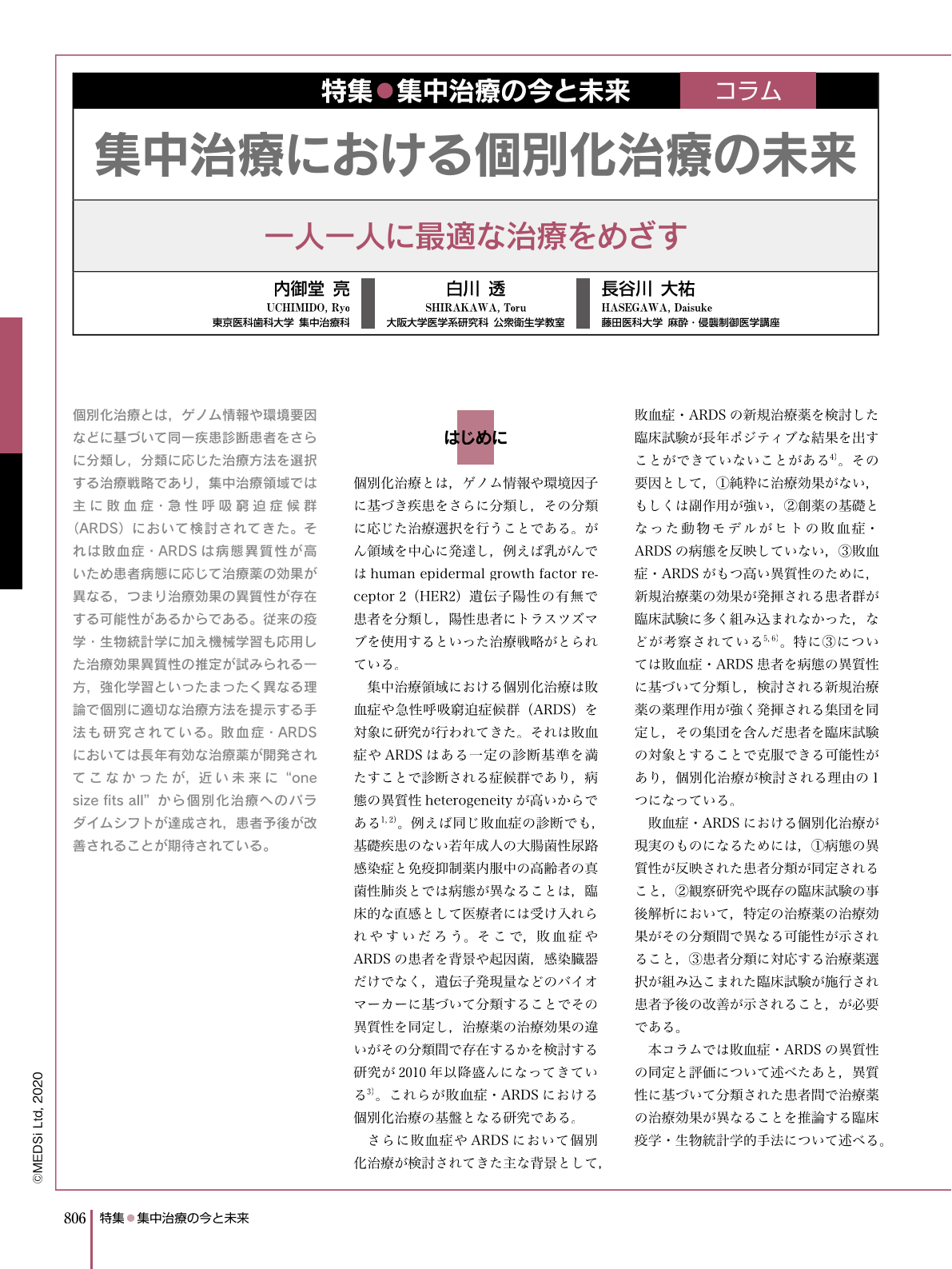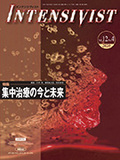Japanese
English
- 有料閲覧
- Abstract 文献概要
- 1ページ目 Look Inside
- 参考文献 Reference
個別化治療とは,ゲノム情報や環境要因などに基づいて同一疾患診断患者をさらに分類し,分類に応じた治療方法を選択する治療戦略であり,集中治療領域では主に敗血症・急性呼吸窮迫症候群(ARDS)において検討されてきた。それは敗血症・ARDSは病態異質性が高いため患者病態に応じて治療薬の効果が異なる,つまり治療効果の異質性が存在する可能性があるからである。従来の疫学・生物統計学に加え機械学習も応用した治療効果異質性の推定が試みられる一方,強化学習といったまったく異なる理論で個別に適切な治療方法を提示する手法も研究されている。敗血症・ARDSにおいては長年有効な治療薬が開発されてこなかったが,近い未来に“one size fits all”から個別化治療へのパラダイムシフトが達成され,患者予後が改善されることが期待されている。
Personalized medicine is the practice of medicine that uses an individual's genetic profile and environmental factors to classify patients with the same diagnosis and guide therapies based on these classifications. Sepsis and ARDS have been the focus of research investigating personalized medicine in intensive care because of their great pathological heterogeneity that indicates the presence of heterogeneity of treatment effects. While many studies have used epidemiological, biostatistical, and machine learning methods to assess the heterogeneity of the treatment effect, novel methods such as reinforcement learning have emerged and present new approaches to provide the best therapy for each patient. Although clinical trials in sepsis and ARDS have failed for decades, a successful move from “one size fits all” therapy to personalized medicine is expected to improve patient outcomes.

Copyright © 2020, MEDICAL SCIENCES INTERNATIONAL, LTD. All rights reserved.


